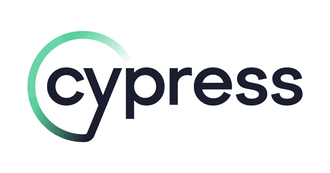Playwright vs. Cypress: Selecting the Ideal Automated Testing Tool for Your Web Project
Contents
In any web project, front-end development plays an important role in creating a visually appealing and user-friendly web application. Besides having an attractive design, it should also offer users a seamless and intuitive experience navigating the application while meeting the functional requirements.
To ensure that all boxes are ticked, it's important to test your code using an effective and efficient way. With the ever-increasing complexity of modern web applications and the need for frequent updates, manual testing alone is often inadequate. Therefore, you should incorporate automated testing in your development process.
Automated testing offers a systematic approach to verifying the functionality of front-end components and interactions across different browsers, devices, and user scenarios. In this article, we’ll introduce you to two popular automated testing tools— Playwright and Cypress , and compare some of their important features to help you choose the right automated testing tool for your web application.
What is Playwright?

Playwright is a relatively new browser automation tool that was released by Microsoft in 2020. It allows developers to write automated tests that can interact with web browsers such as Chrome, Firefox, Safari, and Microsoft Edge. Using a single API, you can carry out automation on multiple browsers and platforms, including their mobile versions.
The Playwright API supports multiple programming languages like TypeScript, JavaScript, Python, .NET/C#, and Java, making it a popular choice for developers from different software ecosystems. Playwright also offers several features that make it a strong competitor among other automation tools and frameworks. One of them is its ability to run multiple instances simultaneously—you can test scenarios with different contexts that span multiple tabs, origins, and users, all in one test.
What is Cypress?

Cypress is an all-in-one JavaScript component and end-to-end testing framework that makes setting up, writing, running, and debugging tests easy for developers and QA. It consists of two main products: the free open-source Cypress app and the subscription-based Cypress Cloud.
The Cypress app is the core of Cypress. Developers can write all forms of tests, including unit, integration, and end-to-end tests for their web applications and watch them run in real-time with the app alone, without installing any additional library. Additionally, Cypress Cloud complements the Cypress app by enabling integration with CI pipelines, with support for CI providers like CircleCI, GitHub Actions, Bitbucket, Jenkins, and more.
Comparisons Between Playwright and Cypress
Cross-Browser/Platform Support
Playwright has a more modern architecture and currently supports all modern rendering engines like Chromium, WebKit, and Firefox. You can run Playwright on the latest versions of Chrome, Firefox, Safari, and Microsoft Edge.
Cypress supports multiple browsers too. Currently, it supports Chrome, Electron, Firefox, and WebKit (experimental). To run Cypress tests on these browsers, you need to install them in your local system or CI environment. Then, you can select your desired browser from the Cypress app and run your tests with it.
Both Playwright and Cypress can be installed and run on Windows, Linux, and macOS. That said, both of them have different system requirements. You can check the details on their websites.
Mobile Support
Playwright has native mobile emulation of Google Chrome for Android and Mobile Safari for iOS. This gives it a big advantage over other automation tools that require additional plugins. With Playwright, you can emulate any device by using appropriate configurations and also simulate browser behaviors like “touch” on mobile phones and tablets.
Cypress can be used to test the functionality of your web applications on mobile web browsers too. With Cypress, you can set the browser's viewport and mimic users’ behaviours on the phone like swiping using custom commands. Although Cypress is developed to test web applications, you can also use it to test mobile applications that are developed in a browser, like the Ionic framework.
Programming Language Support
Playwright supports up to five programming languages that share the same underlying implementation for its API. You can use the Playwright API in Node.js (TypeScript/JavaScript), Python, .NET/C#, and Java. Although all core features for automating the browser are available for these languages, the testing ecosystem integration is different for each of them.
Cypress supports primarily JavasScript. As the Cypress test code is executed in the browser itself, JavaScript is all you need to run them. That said, you can also use Cypress with TypeScript 3.4+, as it ships with official type declarations for Typescript.
Community Support
Playwright has great community support and has a “Community” page on its website. Its GitHub repo is used by 25.1k members and contributed by more than 390 developers. Any bug report, feature request, regression, or security vulnerability can be submitted if you wish to contribute to its development. Besides that, there’s also a community Discord Server for developers using Playwright to connect and ambassadors that create content around the incredible tool to share their knowledge.
Cypress's free and open-source app is MIT-licensed. Its GitHub repo has more than 616 contributors and is actively maintained. Besides that, there are various community events like webinars, meetups, and virtual activities for the community to connect and advance their testing skills with Cypress. You can even be a Cypress ambassador. As an ambassador, you can share your Cypress knowledge through blog posts, articles, conferences, and other events and enjoy some exclusive benefits like insider access.
Debugging
Playwright provides powerful debugging capabilities to help developers identify and diagnose issues in their web applications. One of them is the VS Code Extension. It helps developers debug their tests, see error messages, set breakpoints, and step through them right in VS Code. Besides that, there are also the Playwright Inspector that helps developers to step through their tests, edit locators live, pick locators and see actionability logs, and the Trace Viewer that lets developers explore recorded Playwright traces of their tests.
Cypress is one of the automated testing tools with the best debugging features. When your test fails, there are hundreds of custom error messages that describe the exact reason for failure and you can debug them visually with its rich UI. When the test is running, you can see the command execution, assertions, network requests, page loads, and other events that are going on from the app and inspect the elements from the browser’s inspector. If you’re subscribed to Cypress Cloud, you’ll have access to even more detailed insights on your test's performance, like flaky test analytics, test suite analytics, failure and error summary, and more.
Parallel Execution
Playwright's test files run in parallel by default but the tests in the same test file run in order. However, you can configure your project to run the tests within the same test file to run in parallel too. Each test file runs in an independent worker process and you can control the maximum number of parallel worker processes via the command line or in the configuration file.
Cypress can run parallel tests across multiple virtual machines since version 3.1.0. Although parallel tests can be run on a single machine, it is not advisable to so do as this requires more resources to run the tests efficiently. One thing to take note of is the run order of the tests is not guaranteed. The balance strategy will assign the spec file of each test to different virtual machines and start with the most time-consuming ones based on their previous run histories. This will help to minimize the overall test run duration.
Other Features
There are many other features that make Playwright and Cypress the top choices for automated testing, like:
Playwright
- Records your actions and generates test codes in any programming language
- Creates independent browser context for different tests fast
- Saves the authentication state of a browser context and reuses it in all tests while keeping each test isolated
- Waits for elements to be actionable before performing actions
- Has a rich set of introspection events
Cypress
- Generates tests as you click and record each interaction with your application
- Has an interactive selector playground that generates commands for matching any element
- Automatically cancel a run after a configurable number of failures
- Isolates the state of each test and clears the state of the browser before the next test runs (this reduces flaky test results)
- Prioritizes the test specs that failed in the previous Cypress run automatically
Conclusion
Ensuring the quality and functionality of a web application requires thorough testing. In this article, we have explored two popular automated testing tools, Playwright and Cypress, and compared their main features. Whether you opt for Playwright with its multi-programming language support and ease of use, or Cypress with its comprehensive testing capabilities and debugging features, leveraging automated testing can enhance your development efficiency and deliver results with higher quality.



